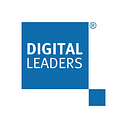Facebook and the next stage of our digital Meta-morphosis
Written by Professor Alan Brown, Professor in Digital Economy, Exeter Business School
I have never liked being Alan Brown. It feels like such a boring name. Too easily forgotten or confused with so many others with the same identity. Apparently, I was going to be called Alex, but there was a change of mind at the last minute. But I am not sure that would have helped much. In fact, I remember at IBM, a company that had 450,000 employees at that time, scanning through the IBM Bluepages staff directory to find that there were 6 other Alan Browns. No wonder my email had been going astray! I wonder, would my life have been different if I’d had a more interesting name?
However, beyond these concerns, the importance of the timing of the announcement of Meta should not be overlooked. The past 2 years of the global pandemic have been very challenging for so many individuals, organizations, and institutions. One result of this has been a collective reassessment of where we are going in our lives, driving shifting perspectives on the future of the planet, and forcing personal adjustments in how we want our future to unfold. Today, many people see the world through different eyes.
Driven by this great acceleration in digital technology adoption, the effects of the shifting attitudes and understanding of this transformation are being widely seen. From the great dispersion to the great resignation , the implications for us all are profound. We may well be entering a time when there is a significantly different balance between the raised expectations and aspirations for a digitally-powered future versus the slow pace of change adopted by many of our major institutions. A tension that will define the agenda of many company strategies over the next few years.
With the announcement of Meta, we can see Facebook throwing down the gauntlet for a new digital future. Beyond today’s 20 th century view of the internet-based networks that have shaped our thinking about how to digitize the world we know, Facebook can be seen to be challenging us to reimagine the future as a different country. And as Ben Evan’s stated , in this new environment Facebook wants to be the landlord, not a tenant.
The metaverse will feel like a hybrid of today’s online social experiences, sometimes expanded into three dimensions or projected into the physical world. It will let you share immersive experiences with other people even when you can’t be together — and do things together you couldn’t do in the physical world. It’s the next evolution in a long line of social technologies, and it’s ushering in a new chapter for our company.
On the surface, the approach described is an obvious step to place their investments in virtual reality (Occulus) and video messaging (Instagram) into a broader context where they reimagine social media platforms as collaborative spaces for work, interaction, and entertainment. Undoubtedly, we will see early announcements of new capabilities and products building on this base.
In recent years, there has been a huge step forward in these immersive worlds, mainly in the online games industry. As we have seen from the success of games such as Minecraft and Fortnite, these technologies have the ability to hold people’s attention, create meaningful interactive experiences, and drive significant ecosystems of commercial products and services. A model for success that will have received a lot of attention from all the major technology platform providers.
Originally published at https://digileaders.com on November 1, 2021.
